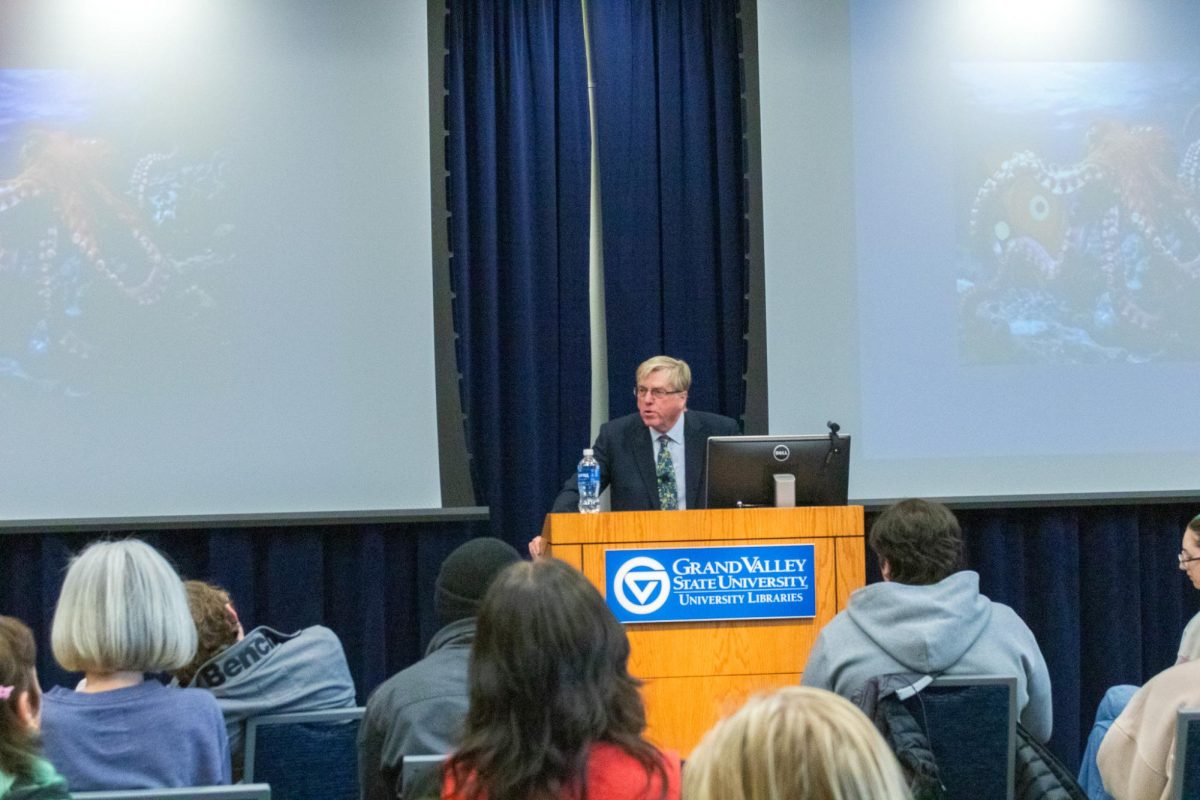Informational Freedom
Apr 17, 2014
In August 2013, the Obama Administration announced that it would be putting together a list of colleges that ranks universities based on their value for their students’ dollar. The Student Press Law Center requested that the government consider how readily universities share information with the public as one of the measures.
Officials at Grand Valley State University said that compared to other schools, GVSU has information readily available to anyone who seeks it.
“I think we’re way ahead of that curve,” said Matt McLogan, vice president for university relations. “We’ve been publishing an accountability report for eight years with almost 40 measures on how the university performs and how students perform while they’re here.”
McLogan said GVSU makes much of its information available online, such as budgets, security and crime statistics, collective bargaining agreements, and reverse transfer agreements with community colleges.
“Depending on the data, (there are) explanations on how and what we do,” he said. “It’s on annual audited financial statements — which are about 80 pages — on how and why we spend and what our practices are.”
With information readily available online, McLogan said the university rarely gets Freedom of Information Act requests.
“Michigan has a robust Freedom of Information Act,” he said. “If their questions are still not answered, they can ask — just call the department. Hardly anyone would have to use that process.”
University Counsel Tom Butcher said that for the 2012-2013 fiscal year, the university received 89 FOIA requests, and so far for the fiscal year 2013-2014, it has received 40 FOIA requests. In the calendar year of 2013, there were a total of 64 requests.
While some information may be available online, these statistics contrasted with McLogan’s statement that FOIAs were hardly ever filed.
“FOIA requests are rare because we are very open around here,” he said. “It is generally available by request. We might get one a month, and that would be a lot. We follow the law in terms of when and how we must reply; it has laws and we follow them.”
Butcher said the laws for FOIA requests require a response within five business days but that the public body can extend the response an additional 10 business days. Some information is excluded from being open to the public, such as student records or test answer keys.
McLogan said GVSU would rank well compared to other schools with much of the university’s information available online or upon request. To find more information, visit www.gvsu.edu/accountability.






















